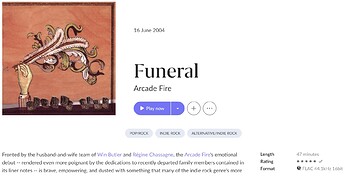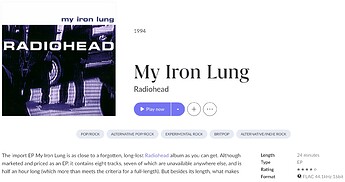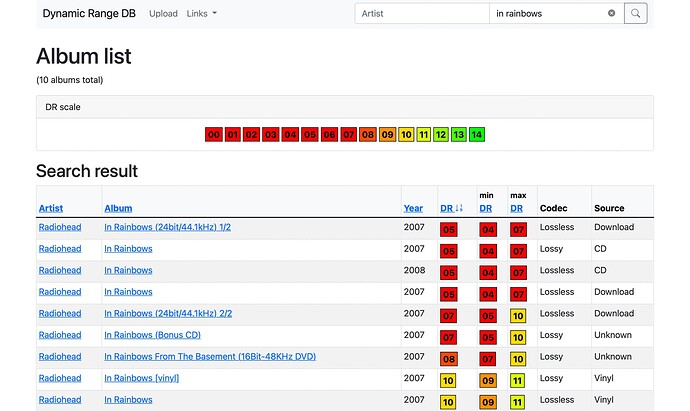@IgorSki there just is no perfect filter for all occasions as you know but, I think that for most things pop/rock, poly-sinc short mp is hard to beat. Also, PCM 768 with NS5 betters DSD for kicking out the jams. All just my opinion, of course.
Ever since gauss-hires came out I’ve been using the following combination with ASDM7ECV2 / DSD256
Gauss-long (1x)
Gauss-hires-lp (Nx)
The combo is the most versatile I’ve found, it evens makes some poorly mastered recordings that sounded like utter crap on some of my previous favorite filters (such as ext3 & xtr-short-mp) sound divine.
If I do switch to anything else it’s not for long and I always come back to this combo.
Yup those are good for some music, I listen to them here and there. Question though, why wouldn’t you listen to gauss-long at nx?
Hey, thanks for a tip, I’ve not really thought of stepping down from 1,4/1,5Mhz before, somehow. Althought I’m not a frequent PCM goer, surprisingly to me, I liked 768 in “HA MAY” ! Except, I was switching back and fourth between NS5 and LNS15… do I hear the difference? ![]()
Yeah, I’ve got mine “HQP swiss knife” combo as well. But this time (I’m talking about my post above), it did not work. After my panic attack and some listening it all boils down to these two albums, really. Try them, interesting to know how you accept them in your system, with your listening habbits + HQP set up. In my case, I guess my ear-brain system was just not ready, and I struggled ![]()
![]()
![]()
![]()
I can tell you Funeral sounds fantastic with the above settings in my system, it’s in my regular rotation (as does Radiohead / Thom Yorke in general it’s just been a minute since I listened to My Iron Lung…I’ll have to get back to you on that one)
Thanks !
I than strongly suspect it is just my listening habbits. “Funeral” is a sound scandal for my brain ![]() As for Radiohead example above, not all compositions kick me in my back. In fact I hear “My Iron Lung” as more clean recording comparing to “Funeral”, judging by my ability to separate instruments and follow its’ lines.
As for Radiohead example above, not all compositions kick me in my back. In fact I hear “My Iron Lung” as more clean recording comparing to “Funeral”, judging by my ability to separate instruments and follow its’ lines.
Interesting… I will continue my quest ![]()
Over this weekend, thanks to Roon daily mixes, I have discovered tons of Italian progressive form 70s, wow!
Looking back at your post, something seems off with your copy of In Rainbows. Even for a loudness war album the lowest dynamic range it should have is a 5 (high quality 24 bit would be a 7). It would go up from there most likely indicating the quality of the rip since they are vinyl after that. If your dynamic range is a 3, it sounds like you have a transcode (which is likely what you are hearing).
PM me so we can keep this thread clean.
Thank you, sure I’ll PM you! Indeed we are gradually drifting off-topic.
Nonetheless for “public” eye and to share experiences the question is still valid
- What’s your best HQP filters for “loud” and heavily compressed recordings?
PS: btw, on your remark above - “loundess-war” database is “crest method” DR measurement, in ROON is R128 “loudness” standard. Different algorithms, can’t compare directly. The simpliest and best ever explanation on differences I saw here Dynamic Range - JRiverWiki
Just IMO, subjective opinion.
If you have a really dense (or compressed/clipped/loudness war) recording, it is even better to stick to higher rate DSD output. At least DSD256 or even better DSD512, using the EC modulators.
PCM conversion, even at 1.5M, can become congested and lack “depth and air”.
If it’s 44.1/48k source, use of an apodizing filter is typically must. Also good to stick to some shorter filter, such as poly-sinc-short. And possibly minimum-phase.
Another approach is to use longer one, but one that is especially transient optimized, such as poly-sinc-gauss family.
I’m nowadays very happy with
1x=poly-sinc-gauss-long
Nx=poly-sinc-gauss-hires-lp
So much that I have made this the new default in latest release.
For anyone using the Convolution Engine, or @jussi_laako does enabling a convolution algorithm add any significant additional CPU or is it negligible?
(Currently upsampling to DSD256 using an M1 Mini for reference)
Depends if you’re doing convolution with DSD files?
For PCM files, it’s not significant.
Can be significant for DSD files, especially multichannel DSD input and DSD output.
Just give it a try on your M1?
I normally would but the specific filters I’m thinking of adding are $200 (LCD-5 FIR Filters from Mitch Barnett). More details in the link below, I’d like to be relatively sure before placing the order though (scroll to the bottom for details on the filters)
What you just said confirms my understanding though. I’ll only be applying the convolution to PCM (not any native DSD which would need to convert to PCM first at 1/16 DSD rate, which could be CPU intensive). No multichannel either.
He offers the filter up to 384k and will split the L&R mono as well.
Have you also tried oratory1990’s LCD-5 EQ?
No need to use FIR convolution for that. Just use HQP’s built-in parametric EQ.
Yes, it’s not great on the LCD-5, although I did use it on my LCD-X and enjoyed it. Crinnacle was even worse. I don’t think these are meant to be tuned to Harman
Resolve v2 is what I’m using now and it’s pretty nice. Most owners are using his PEQ or a modified version of it tailored to personal preferences. The handful of people who have bought the convolution FIR filters from Mitch Barnett have been impressed with the results.
I go back and forth on if I prefer PCM over DSD and usually PCM wins. But listening now to your suggested settings and damn if it isn’t sounding very good right now.
If your output is DSD, then DSD sources wouldn’t get converted to 1/16th PCM, but instead convolution is performed at the source DSD rate. This can get heavy.
If your output is PCM, then the DSD-to-PCM is usually not very heavy, but depends on your conversion settings though. In that case, convolution would happen 1/16th rate in PCM which is usually not particularly heavy.
I’m back to gauss-long ![]()
My brain has become used to this being “correct”
Thanks @jussi_laako Appreciate the clarification
I went ahead and bit based on others reviews. I’ll give it a shot later today.
Psycho Killer (Live LP version) and for any similar circumstance where all I want is every last drop of transient slam I can get… poly-sinc-short-mp
long-gauss, which sounds great but by comparison sounds like someone pushed the loudness button, cannot compete…



